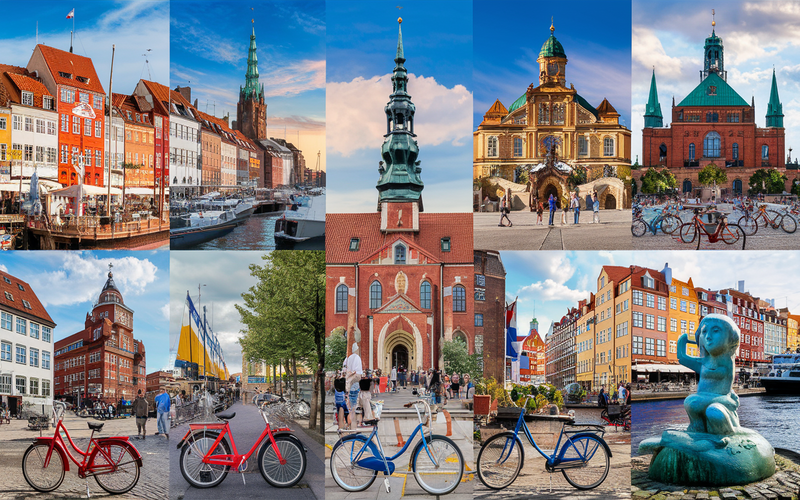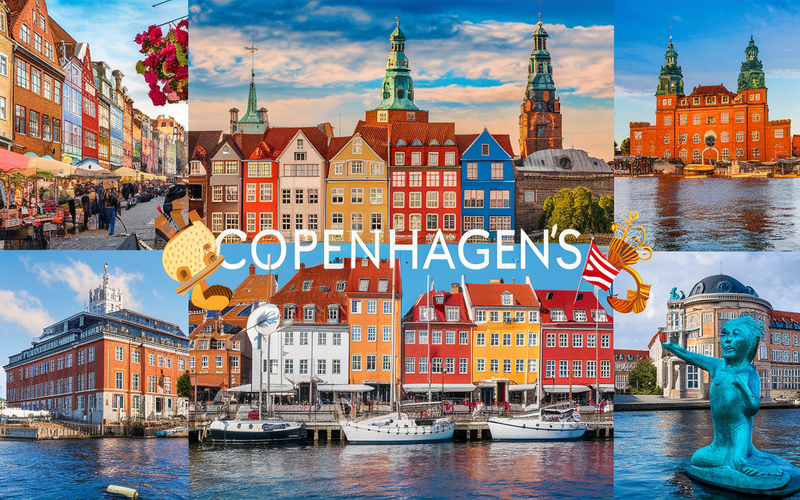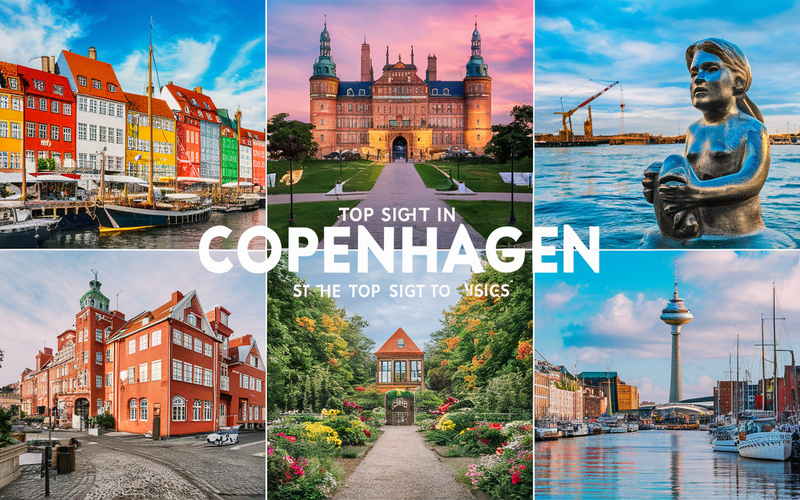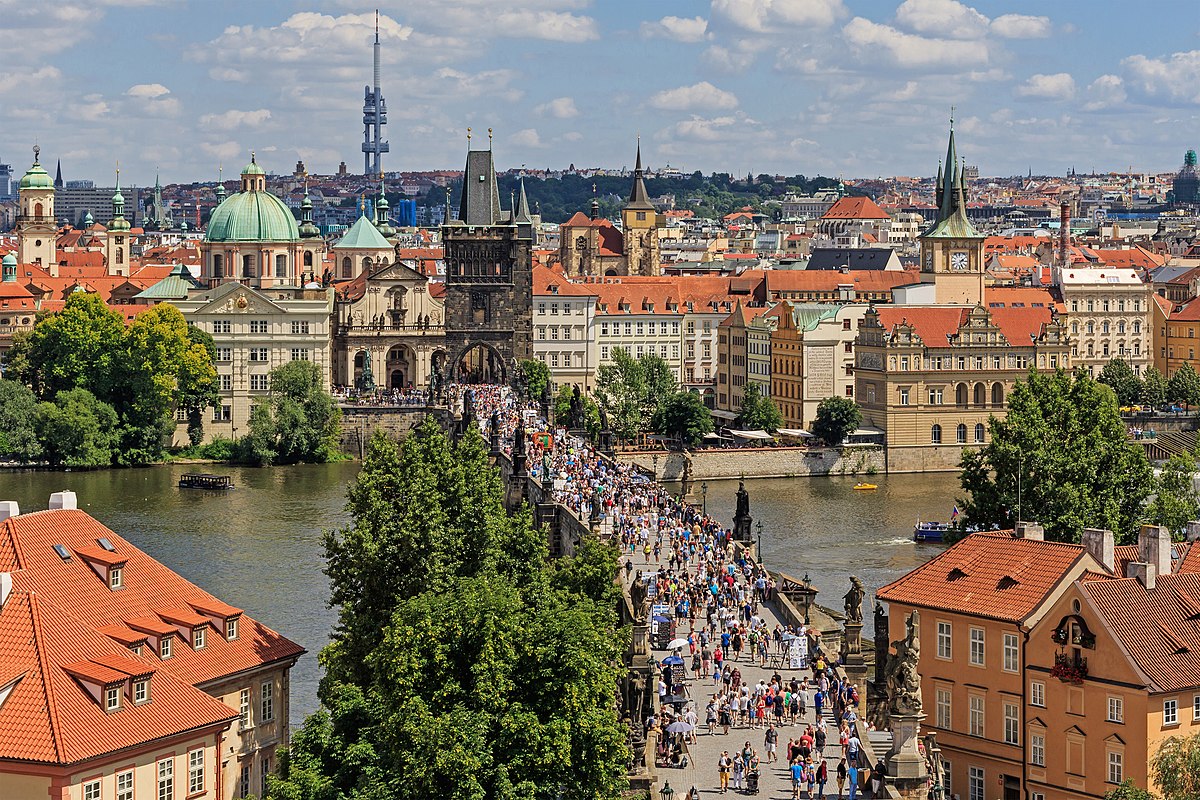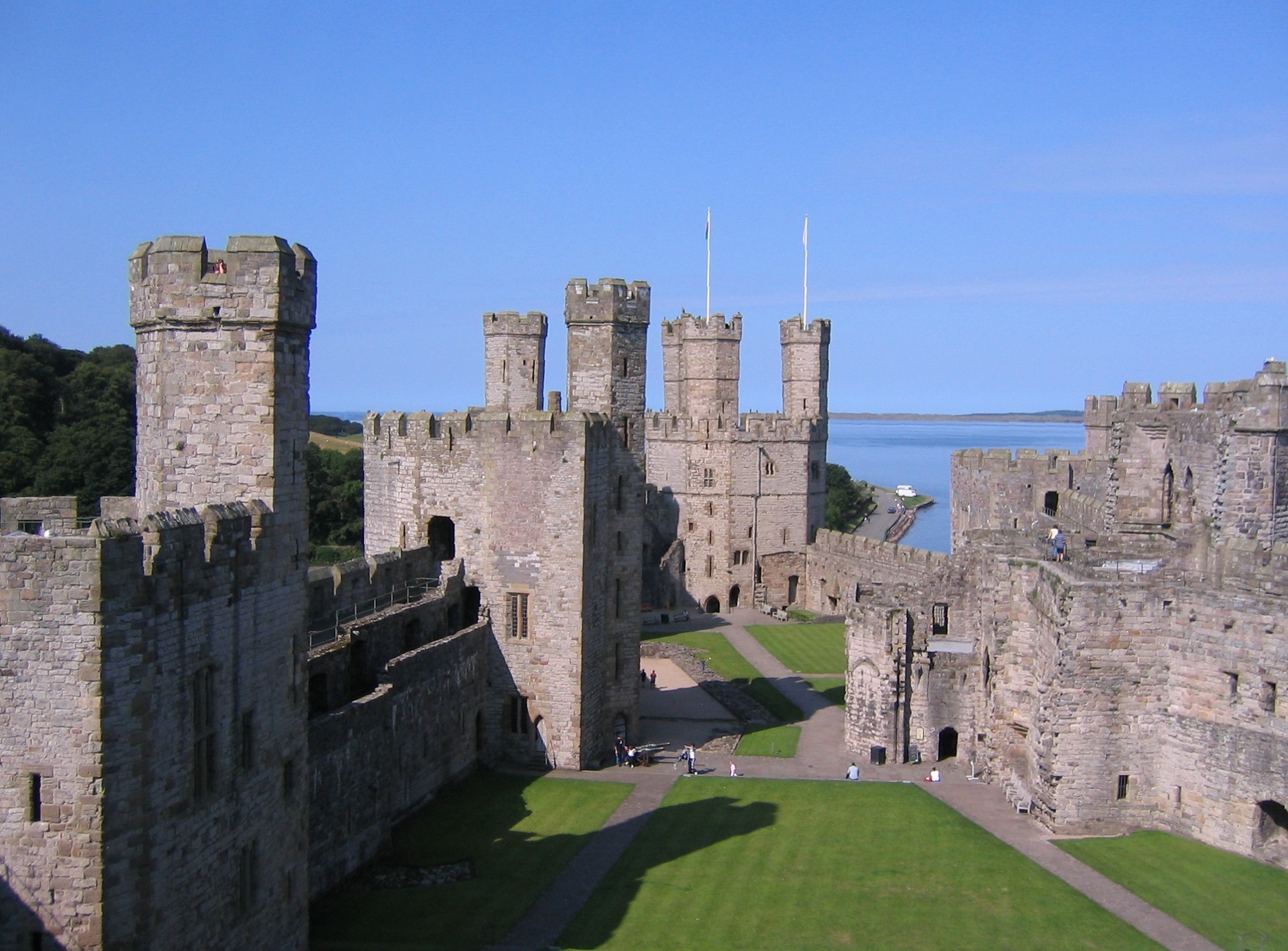Plan Your Travel To Denmark
Denmark Travel Essentials
Ideal Duration: 4 - 6 days
Currency: Danish Krone (DKK)
Best Time: Mid-June to Mid-August Read More
Budget: Expensive
"The Scandinavian gem"
Denmark Tourism
Denmark is a gem of Scandinavia that greets guests with the ideal combination of contemporary innovation and ancient charm. The capital city of Copenhagen enthrals with its famous Little Mermaid monument, colourful Nyhavn Harbour, and Tivoli Gardens theme park. Discover the marine charm of Aarhus and wander the mediaeval alleyways of Odense, the birthplace of Hans Christian Andersen. Beautiful cliffs and immaculate beaches may be found throughout Denmark's coastline, while castles reminiscent of fairy tales can be seen throughout the nation. Enjoy Nordic food at quaint cafés, stroll through outdoor markets, and embrace the bicycle-friendly culture. Denmark, known for its hygge—a distinctively Danish feeling of comfort and contentment—invites visitors to witness a peaceful fusion of history and contemporary in a nation rich in cultural heritage, progressive society, and design.
Must Know Before You Travel to Denmark
1. Weather-Appropriate Clothing: Denmark experiences diverse weather, so pack layers and be prepared for rain. Comfortable footwear is ideal for exploring cities and the countryside.
2. Currency and Payment: Denmark uses the Danish Krone (DKK). While credit cards are widely accepted, having some local currency for smaller transactions is advisable.
3. Bicycle-Friendly Culture: Embrace Denmark's love for cycling. Cities are bike-friendly, and renting a bike is an excellent way to explore urban areas and scenic landscapes.
4. Language Considerations: Danish is the official language, but English is widely spoken. Learning a few basic phrases in Danish is appreciated and enhances your experience.
5. Cultural Etiquette: Danes value personal space and privacy. Queues are common, and respecting the orderly system is important. Tipping is included in restaurant bills.
6. Public Transportation: Denmark has efficient public transportation. Trains and buses connect cities, and the Copenhagen Metro is a convenient way to navigate the capital.
7. Hygge Lifestyle: Embrace the Danish concept of "hygge," representing a cosy and content way of life. Enjoy the warmth of cafes, explore local markets, and savour Nordic cuisine.
8. Museum and Attraction Passes: Consider city passes for access to museums and attractions, providing cost-effective ways to explore cultural and historical sites.
9. Tap Water Quality: Denmark has high-quality tap water, so it's safe to drink. Bring a reusable water bottle to stay hydrated while reducing your environmental impact.
10. Respect for Nature: Denmark takes pride in its natural beauty. Respect outdoor spaces, follow designated trails, and dispose of waste responsibly to support sustainable tourism.
11. Emergency Services: Save local emergency numbers and familiarise yourself with the location of embassies or consulates for your country.
12. Electricity and Adapters: Denmark uses Type E and K electrical outlets. Bring suitable adapters for your electronic devices.
Tourist Places to Visit In Denmark
Copenhagen
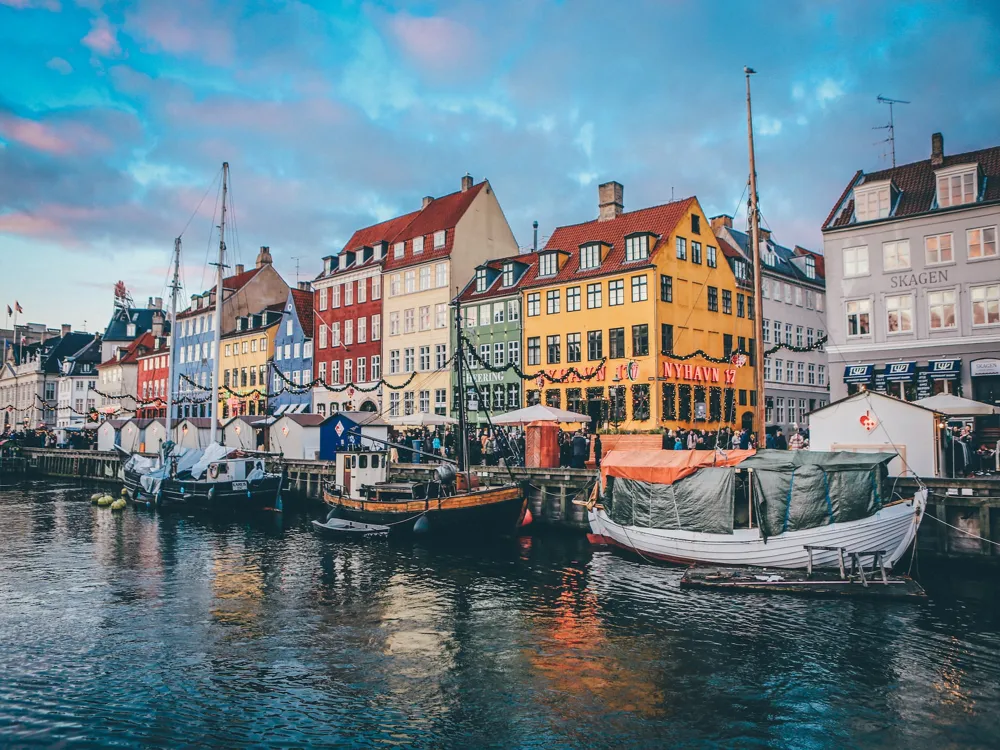
Denmark Travel Packages
Compare quotes from upto 3 travel agents for free
View All Packages For Denmark
More on Denmark Travel
All collections about Denmark
Best time to visit Denmark
While daylight hours are lengthy and temperatures are comfortable between 59°F and 68°F, June, July, and August are the finest months to visit Denmark because they are perfect for trekking across the beautiful countryside. The shore may get crowded during this time of year, when both locals and tourists enjoy spending time outside. Between September and November, the temperature gradually drops from 64°F to 46°F as the season progresses. With fewer people around, the longer evenings are ideal for warming up by a crackling fire with a nice blanket. When the weather is at its most pleasant all year round, now is the ideal time of year to visit Denmark. The season's main draws are the A-list concerts, which take place over the long days. Since it usually doesn't rain during the year, it never poses an issue when travelling. Season. Since it usually doesn't rain during the year, it never poses an issue when travelling.
Top Stories about Denmark Tourism
Read More on Denmark Travel
Exchanging money in Denmark:
Denmark uses the Danish Krone (DKK) and is a member of the European Union but not the Eurozone. For competitive rates, exchange money at ATMs, banks, or exchange offices. Although most places take credit cards, it's still helpful to have some local cash on hand, particularly for smaller businesses. To prevent any problems with card transactions, be mindful of any surcharges and let your bank know when you will be traveling.
Nightlife in Denmark:
Denmark has a very active nightlife, especially in the larger cities like Aarhus and Copenhagen. Discover hip lounges, clubs along the sea, and bustling bars. Aarhus has bustling street scenes, while the Copenhagen Meatpacking District has unique venues. Discover the Danish notion of "hygge" at welcoming bars and take in the wide range of musical offerings, including jazz and techno rhythms. Denmark's nightlife is friendly and entertaining since it prioritizes safety.
Shopping in Denmark:
Denmark provides a distinctive shopping experience by fusing contemporary style with age-old craftsmanship. One of Europe's longest pedestrian avenues, Strøget in Copenhagen, is home to both Danish and foreign designers and companies. In the Latin Quarter, browse stores to find Scandinavian home decor. Copenhagen is known for its furniture design; check out storied shops such as Illums Bolighus. Handmade goods and Nordic delights may be found at local markets. While the quality is superb, the price might be higher. This makes shopping in Denmark a fascinating blend of classic flair and modern elegance.
Festivals in Denmark:
Denmark celebrates the diversity of its cultures through many festivals. One of the biggest music festivals in Europe, Roskilde, attracts a varied population as well as international artists. The lively Aarhus Festuge is a festival dedicated to the arts, and music lovers flock to the Copenhagen Jazz Festival. Join the Aalborg Carnival, a vibrant procession of color and imagination, and embrace the holiday spirit at Tivoli Gardens this Christmas. Denmark's festivals provide a vibrant blend of art, music, and cultural manifestations, resulting in an engaging experience for both residents and tourists.
Hygiene in Denmark:
Denmark upholds strict hygienic regulations, guaranteeing pristine and secure surroundings. Drinking tap water is safe, and maintaining clean public areas is a top priority. Restaurants provide safe eating experiences by following stringent sanitary rules. Waste disposal facilities are conveniently located in public spaces. Danish culture places a strong emphasis on environmental sustainability and hygiene. Public bathrooms are often in decent condition. Travelers may securely uphold proper hygiene while in Denmark, adding to the welcoming and healthful atmosphere of this beauty of Scandinavia.
Tips for visiting Denmark:
1. Explore by bicycle: Denmark is famously bike-friendly. Rent a bicycle to explore cities and scenic countryside, enjoying the country's well-developed cycling infrastructure.
2. Experience "Hygge": Embrace the Danish concept of "hygge" by indulging in cozy cafes, leisurely walks, and the warm hospitality of locals. It's a key aspect of the Danish lifestyle.
3. City Passes for Savings: Consider city passes for access to museums and attractions. They offer cost-effective ways to explore cultural and historical sites in cities like Copenhagen.
4. Cash and Cards: While credit cards are widely accepted, having some Danish Krone (DKK) in cash is useful, especially in smaller establishments and markets.
5. Respect for Queues: Danes value order. Respect queues in public places, whether waiting for public transport or enjoying popular attractions.
6. Weather-Appropriate Attire: Pack layers and rain gear. Denmark's weather can be unpredictable, so be prepared for changes and explore comfortably.
7. Learn Basic Phrases: While many Danes speak English, learning a few basic Danish phrases shows respect and can enhance your interactions with locals.
8. Public Transportation Ease: Denmark has efficient public transportation, including trains and buses. Plan your routes, especially for day trips or traveling between cities.
9. Enjoy Open-Air Markets: Explore local markets for handmade crafts, fresh produce, and Danish specialties. Haggling isn't common, but engaging with vendors is encouraged.
10. Mind Your Budget: Denmark can be expensive, so plan your budget accordingly. Consider opting for affordable accommodations, exploring local eateries, and using public transportation.
11. Cultural Etiquette: Danes value personal space and privacy. Be polite, respect local customs, and ask for permission before taking photos of people.
Food of Denmark:
Danish cuisine is a delectable journey blending traditional flavors with modern culinary innovation. Start your day with a Danish pastry, known locally as "Wienerbrød," renowned for its flaky layers and sweet fillings. Explore open-faced sandwiches, or "Smørrebrød," featuring a variety of toppings like herring, smoked salmon, and roast beef. Dive into classic dishes such as "Frikadeller," savory meatballs, and "Stegt Flæsk," crispy pork with parsley sauce. Seafood lovers can savor "Gravad Laks," cured salmon, and "Æbleflæsk," an apple and bacon concoction. Pair your meals with Danish beers and end on a sweet note with "Rødgrød med Fløde," a beloved berry dessert.
Photos of Denmark
All Country Photos Denmark
Popular Questions And Answers on Denmark
What is Denmark known for?
Denmark is renowned for its rich cultural heritage, modern design, bike-friendly cities, and the concept of
What is the best time to visit Denmark?
The summer months (June to August) offer pleasant weather for outdoor activities. However, if you enjoy fewer crowds and can handle cooler temperatures, late spring and early autumn are also favorable.
Is English widely spoken in Denmark?
Yes, English is widely spoken, and most Danes are proficient in English, making communication easy for international travelers.
What is the currency used in Denmark?
The official currency is the Danish Krone (DKK).
Is Denmark a safe country for tourists?
Yes, Denmark is considered a safe destination for tourists. Exercise common-sense precautions, and you'll likely have a trouble-free visit.
How is the public transportation system in Denmark?
Denmark has an efficient and well-connected public transportation system, including trains, buses, and metros, making it easy to explore cities and regions.
What are some must-try Danish dishes?
Sample Danish pastries (
Are there any cultural etiquettes to be aware of?
Danes value personal space and privacy. Respect queues, be polite, and ask for permission before taking photos of people.
Can I use credit cards in Denmark?
Yes, credit cards are widely accepted in Denmark. However, it's advisable to have some local currency, especially in smaller establishments.
What are some popular festivals in Denmark?
The Roskilde Festival, Aarhus Festuge, and Copenhagen Jazz Festival are among the popular festivals, offering a mix of music, arts, and cultural celebrations.

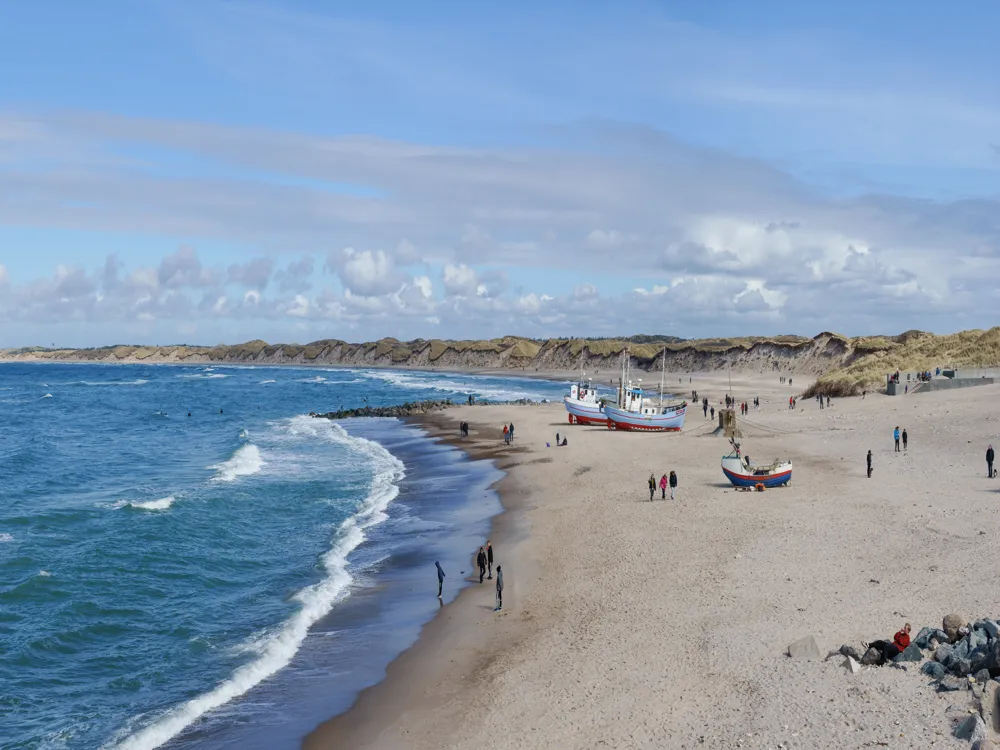
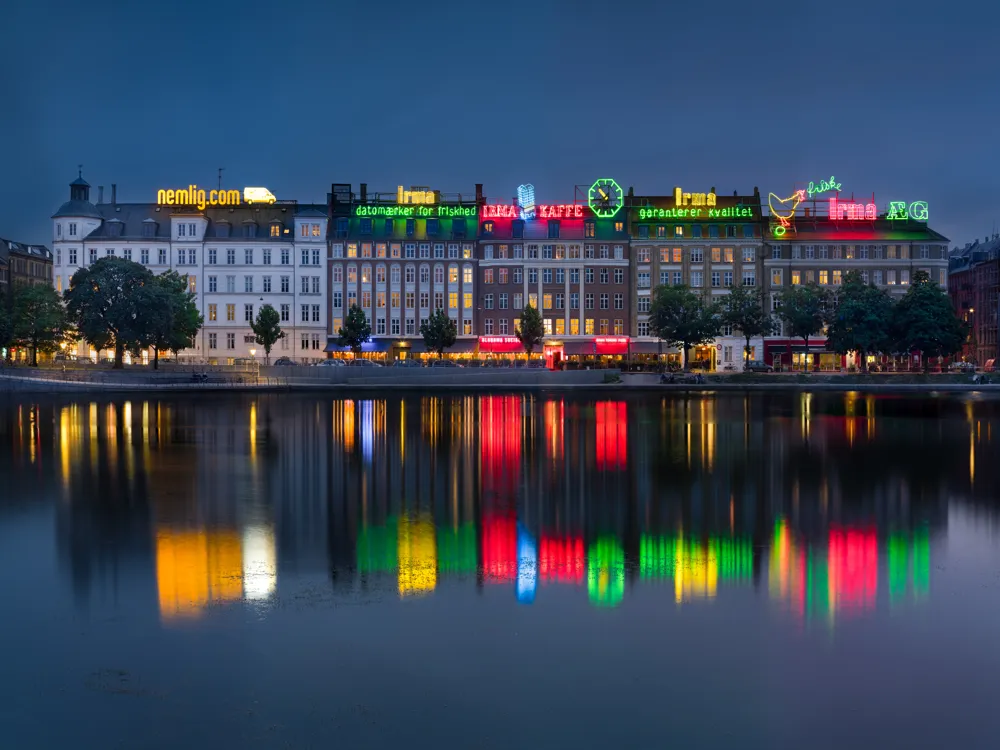
jpg.webp)





